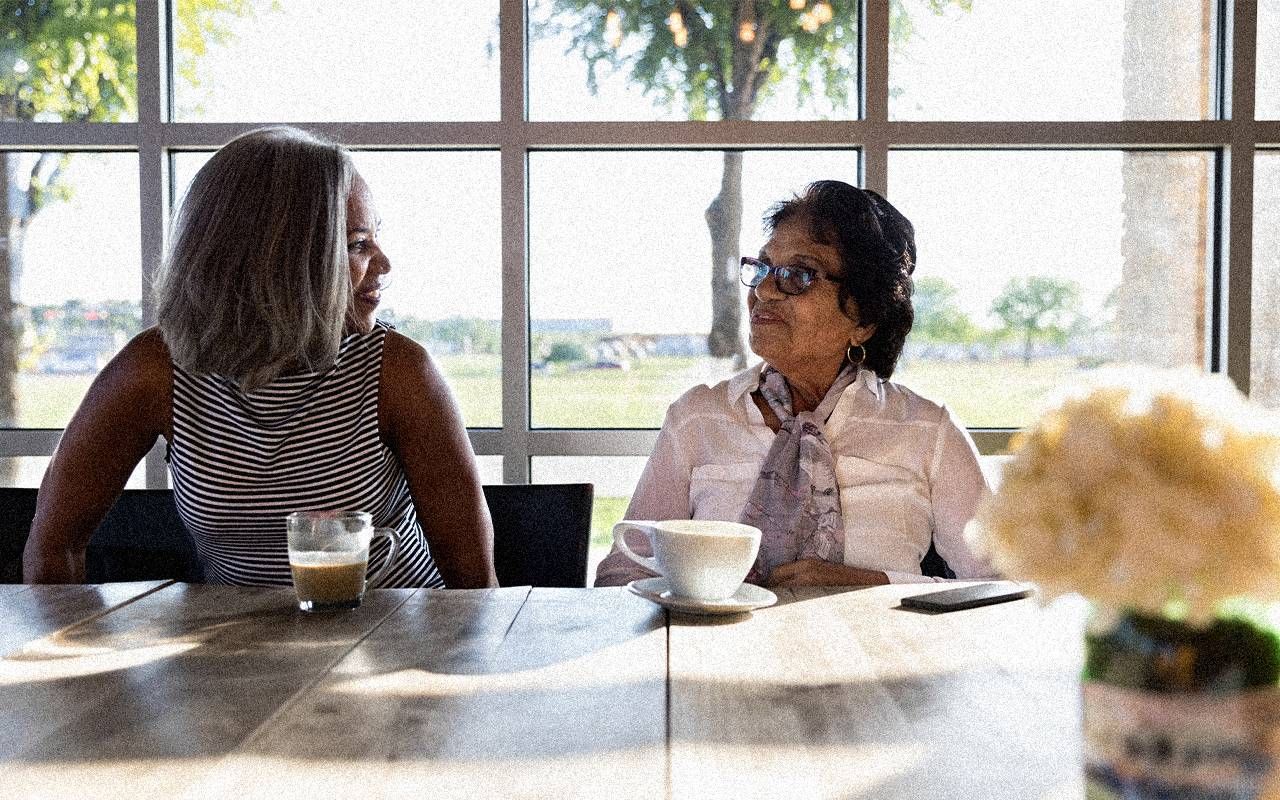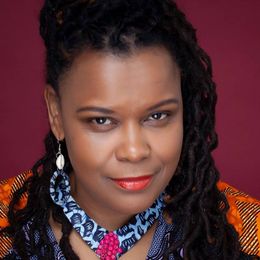What I Learned About Friendship in Midlife When I Had to End One
A friend when the interior of life was so simple can turn into something else once you’ve come into the fullness of who you were meant to be
"If we met today, as grown women, would we even be friends?" When I asked my best friend from elementary school this question, I'd already answered it in my heart. (For the sake of privacy, I'll call her "Sabrina.") I'd wanted to believe that the quiet No didn't matter. I'd told myself that just because Sabrina and I no longer had anything in common didn't mean that we couldn't still be friends. Even if I was finding the effort to connect with her burdensome.

My head had tried to rationalize that since we hadn't kept in touch for much of our adult lives, it was inevitable we'd simply become two different people. Therefore, our attempt to reignite our girlhood connection hadn't been successful. By the time I finally asked the question that had sat between each phone call we'd had in the last year, my head and heart had accepted the uncomfortable truth: as more seasoned women, Sabrina and I just weren't meant to get back together.
I had begun to feel more like her therapist than her childhood friend with whom she genuinely wanted to reconnect.
"I have no idea if we'd be friends if we met now instead of when we were kids," Sabrina stumbled. "But you're so positive. You listen to my problems, and you never say anything negative. You're the only person in my life who does that."
In the months since I'd run into her on a visit home and we'd exchanged numbers, Sabrina had given me some version of this "compliment" several times. "You perform emotional labor so well" didn't impact me the way I'm sure Sabrina intended it.
She'd spend hours unloading every trauma she'd experienced in the last 35 years on me. Then, we'd have little else to talk about. After several months of our catch-up chats consisting of my encouraging her, counseling her or comforting her, I had begun to feel more like her therapist than her childhood friend with whom she genuinely wanted to reconnect.
The Agreements of Adult Friendship
Friendships should come with a certain amount of emotional labor. I enjoy providing this type of care to my friends as much as I appreciate receiving it from them. However, my attempt to reconnect with Sabrina revealed a prerequisite for such care that I'd never considered. There needs to be a history of reciprocity during the life of a friendship to make the effort involved in emotional care worthwhile.
Also, swapping stories of suffering must be buffered by moments of joy and laughter. These moments of levity typically occur when friends have common interests. When they see the world in similar enough ways that they seek out experiences aligned with their values.
Sabrina didn't have a decades-long track record of reciprocating care for me in the way she was now expecting me to hold space for the pain she was experiencing as she became estranged from her family and uncertain about where her career was headed.
I told Sabrina I'd be her silent cheerleader…from the background of her life. Though I didn't plan on engaging with her, I still wished her well and wanted her to thrive.
Still in the South, she had become more socially conservative and committed to church mores. I had grown into an atheist-leaning agnostic who stood socially about fourteen steps left of progressives. Our differences didn't have to make us enemies. However, they provided little motivation for me to try to deepen our connection so we could build a future of reciprocal care.
When I admitted to Sabrina that I felt we weren't meant to be friends as adults, she didn't take it well. I had been on her side of this unpleasant situation before, so I knew rejection didn't feel good. Even if a part of you also detects the misalignment, no one wants to be told, "I don't want you." Instead of flat out saying those exact words, I told Sabrina I'd be her silent cheerleader…from the background of her life. Though I didn't plan on engaging with her, I still wished her well and wanted her to thrive.
Lessons Learned
For months, I had called Sabrina even though talking to her often left me feeling exhausted. I'd told myself that it would be mean to avoid her calls simply because I felt drained after them. This is a twisted ideology that many women hold dear: The belief that it's nicer to continue an ambivalent friendship than to admit you don't enjoy a person's company and stop spending time with them.
Under this belief system, guilt is thought to be a "good," if not, necessary emotion. After all, this friend is not a bad person and didn't harm you so you should feel bad for not wanting her in your life.
I came to realize how unfair this is to the friend who you're holding hostage out of obligation. Someone really does have things in common with her. Someone really does enjoy hanging out with her and has the capacity to support her in ways you find burdensome.
This "guilt" you feel for not wanting her as a friend is more about your ego and how you want others to perceive you. The more humane action is to release her from this contract to make you feel like a good person. Even if it takes courage to do so and requires you to initiate a difficult conversation.
We hadn't been besties in over thirty years, but we had been besties. She was owed the courtesy of my looking her in the eye and telling her the truth.
Furthermore, someone who has done you no harm and with whom you do have some history DESERVES an actual conversation that ends the friendship.
My first thought was to just ghost Sabrina. The woman who knew each of my siblings by name and had slept over at my house. The woman who'd asked how my mother was doing within seconds of us running into each other. It would have been cruel to disappear on Sabrina like she was just some lady who I'd met at a conference and then followed on LinkedIn.
We hadn't been besties in over thirty years, but we had been besties. She was owed the courtesy of my looking her in the eye and telling her the truth. Sabrina deserved to get some sort of closure, even if she hadn't wanted our connection to come to an end.
A Friend By Another Name
I've made good on my promise to be Sabrina's cheerleader from the background. We're still friends on Facebook so I see her posts about her life. I'm excited for her when she seems happy. I root for her to win when she posts about a setback.
Perhaps the problem is the limitation of our language. We need more words. Maybe we expect friend to do too much, which makes conversations like the one I had with Sabrina harder. Someone who was your friend when the interior of your life was so simple, your needs so straightforward …can turn into something else once you've aged and come into the fullness of who you were meant to be.
If not a friend, if not an enemy, if more than just an acquaintance, how can we name the person who's done us no harm, but whom we don't find comfort being in communion with?


